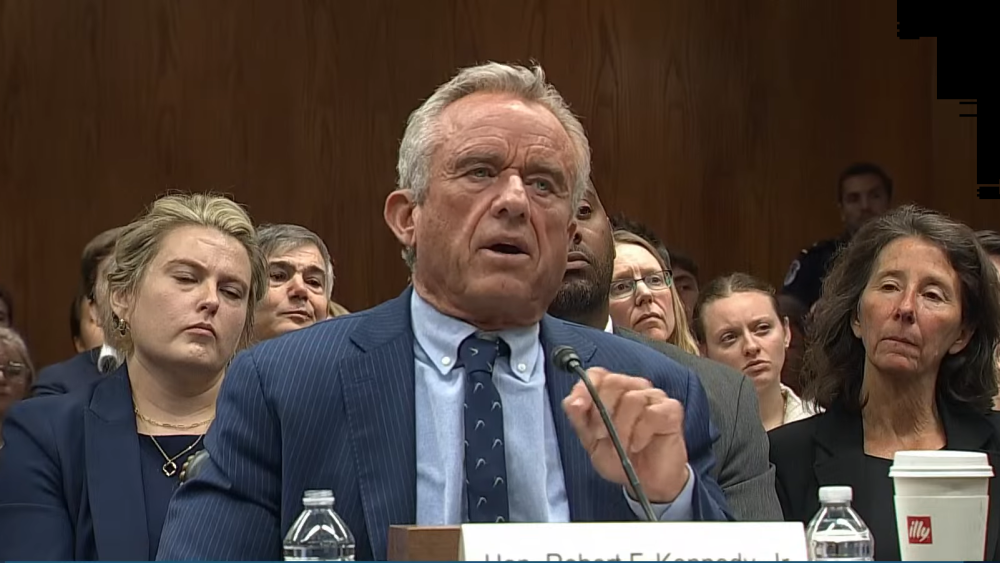Application based on results of pivotal phase 3 QuANTUM-R study of quizartinib in patients with relapsed/refractory FLT3-ITD AML
- Application based on results of pivotal phase 3 QuANTUM-R study of quizartinib in patients with relapsed/refractory FLT3-ITD AML
- Quizartinib is the first FLT3 inhibitor to demonstrate a survival benefit in a randomized phase 3 study in patients with relapsed/refractory FLT3-ITD AML
- Significant unmet medical need exists in Europe for AML with no targeted treatment options approved for patients with relapsed/refractory FLT3-ITD AML, a very aggressive form of the disease associated with poor prognosis
- EU MAA follows recent MHLW submission of quizartinib in Japan; submission in U.S. remains on track for second half of fiscal year 2018
TOKYO and MUNICH and BASKING RIDGE, N.J., Nov. 5, 2018 /PRNewswire/ -- Daiichi Sankyo Company, Ltd. (hereafter, Daiichi Sankyo) announced that the European Medicines Agency (EMA) validated for review and granted accelerated assessment to the Marketing Authorization Application (MAA) for quizartinib for the treatment of adults with relapsed or refractory acute myeloid leukemia (AML) which is FLT3-ITD positive.
Validation confirms that the application is complete and commences the scientific review process by the EMA's Committee for Medicinal Products for Human Use (CHMP). Accelerated assessment is given to products expected to be of major interest for public health and therapeutic innovation and can significantly reduce the review timelines.
The EU MAA is based on results of the pivotal phase 3 QuANTUM-R study of quizartinib, which was the first randomized phase 3 study to show that a FLT3 inhibitor prolonged overall survival as an oral, single agent compared to chemotherapy in patients with relapsed/refractory FLT3-ITD AML. Topline results of the phase 3 QuANTUM-R study were presented during the plenary program at the 23rd Congress of the European Hematology Association in June 2018.
"The accelerated assessment of the quizartinib MAA underscores the significant unmet need for patients with relapsed/refractory FLT3-ITD AML, a very aggressive form of the disease with no approved targeted treatment options in Europe," said Arnaud Lesegretain, Vice President, Oncology Research and Development and Head, AML Franchise, Daiichi Sankyo. "Achieving both these milestones are significant next steps and we look forward to working with the EMA to bring this important potential new targeted treatment option to patients in the EU."
Quizartinib is currently under accelerated regulatory review with the Japan Ministry of Health, Labour and Welfare (MHLW) for the treatment of adult patients with relapsed/refractory FLT3-ITD AML. Submission in the U.S. remains on track for the second half of fiscal year 2018.
In the QuANTUM-R study, the median treatment duration with quizartinib was 4 cycles of 28 days each versus 1 cycle in the salvage chemotherapy arm. Incidence of treatment-emergent adverse events was comparable between patients who received single agent quizartinib and those who received salvage chemotherapy. The most common adverse drug reactions (>30 percent, any Grade) in patients treated with quizartinib included infections, bleeding, nausea, asthenic conditions, pyrexia, febrile neutropenia and vomiting, and the most common Grade ≥ 3 adverse drug reactions (>20 percent) were infection and febrile neutropenia. The most common laboratory adverse reactions (incidence >50 percent) were decreased white blood cell count, decreased lymphocyte count, decreased hemoglobin, decreased neutrophil count and decreased platelet count. The safety profile observed in QuANTUM-R appears consistent with that observed at similar doses in the quizartinib clinical development program.
About FLT3-ITD Acute Myeloid Leukemia
AML is an aggressive blood and bone marrow cancer that causes uncontrolled growth and accumulation of malignant white blood cells that fail to function normally and interfere with the production of normal blood cells.1 FLT3 gene mutations are one of the most common genetic abnormalities in AML.2 FLT3-ITD is the most common FLT3 mutation, affecting approximately one in four patients with AML.3,4,5,6 FLT3-ITD is a driver mutation that presents with high leukemic burden and has poor prognosis and a significant impact on disease management for patients with AML.4,7
Patients with FLT3-ITD AML have a worse overall prognosis, including an increased incidence of relapse, an increased risk of death following relapse and a higher likelihood of relapse following hematopoietic stem cell transplantation as compared to those without this mutation.8,9
About Quizartinib
Quizartinib, the lead investigational agent in the AML Franchise of the Daiichi Sankyo Cancer Enterprise, is an oral selective FLT3 inhibitor currently in phase 3 development for relapsed/refractory FLT3-ITD AML (QuANTUM-R) in the U.S. and EU; phase 3 development for newly-diagnosed FLT3-ITD AML (QuANTUM-First) in the U.S., EU and Japan; and, phase 2 development for relapsed/refractory FLT3-ITD AML in Japan.
Quizartinib has been granted Breakthrough Therapy designation for the treatment of adult patients with relapsed/refractory FLT3-ITD AML, and Fast Track designation for the treatment of relapsed/refractory AML by the U.S. Food and Drug Administration (FDA). Quizartinib also has been granted Orphan Drug designation by both the FDA and the European Commission (EC) for the treatment of AML and by the Japan Ministry of Health, Labour and Welfare (MHLW) for the treatment of FLT3-mutated AML.
Quizartinib is an investigational agent that has not been approved for any indication in any country. Safety and efficacy have not been established.
About Daiichi Sankyo Cancer Enterprise
The mission of Daiichi Sankyo Cancer Enterprise is to leverage our world-class, innovative science and push beyond traditional thinking to create meaningful treatments for patients with cancer. We are dedicated to transforming science into value for patients, and this sense of obligation informs everything we do. Anchored by three pillars including our investigational Antibody Drug Conjugate Franchise, Acute Myeloid Leukemia Franchise and Breakthrough Science, we aim to deliver seven distinct new molecular entities over eight years during 2018 to 2025. Our powerful research engines include two laboratories for biologic/immuno-oncology and small molecules in Japan, and Plexxikon Inc., our small molecule structure-guided R&D center in Berkeley, CA. Compounds in pivotal stage development include: [fam-] trastuzumab deruxtecan, an antibody drug conjugate (ADC) for HER2 expressing breast, gastric and other cancers; quizartinib, an oral selective FLT3 inhibitor, for newly-diagnosed and relapsed/refractory FLT3-ITD acute myeloid leukemia (AML); and pexidartinib, an oral CSF1R inhibitor, for tenosynovial giant cell tumor (TGCT). For more information, please visit: www.DSCancerEnterprise.com.
About Daiichi Sankyo
Daiichi Sankyo Group is dedicated to the creation and supply of innovative pharmaceutical products to address diversified, unmet medical needs of patients in both mature and emerging markets. With over 100 years of scientific expertise and a presence in more than 20 countries, Daiichi Sankyo and its 15,000 employees around the world draw upon a rich legacy of innovation and a robust pipeline of promising new medicines to help people. In addition to a strong portfolio of medicines for hypertension and thrombotic disorders, under the Group's 2025 Vision to become a "Global Pharma Innovator with Competitive Advantage in Oncology," Daiichi Sankyo research and development is primarily focused on bringing forth novel therapies in oncology, including immuno-oncology, with additional focus on new horizon areas, such as pain management, neurodegenerative diseases, heart and kidney diseases, and other rare diseases. For more information, please visit: www.daiichisankyo.com.
Contact
Global and U.S.:
Jennifer Brennan
Daiichi Sankyo, Inc.
jbrennan2@dsi.com
+1 908 992 6631 (office)
+1 201 709 9309 (mobile)
EU:
Lydia Worms
Daiichi Sankyo Europe GmbH
Lydia.Worms@daiichi-sankyo.eu
+49 89 78080
Japan:
Koji Ogiwara
Daiichi Sankyo, Co., Ltd
ogiwara.koji.ay@daiichisankyo.co.jp
+81 3 6225 1126
References
- Leukemia & Lymphoma Society. Facts 2015-2016. 2016.
- Small D. Am Soc Hematol Educ Program. 2006;178-184.
- Schneider F, et al. Ann Hematol. 2012;91:9-18.
- Santos FPS, et al. Cancer. 2011;117(10):2145-2155.
- Kainz B, et al. Hematol J. 2002;3:283-289.
- Kottaridis PD, et al. Blood. 2001;98(6):1752-1759.
- Zarrinkar P, et al. Blood. 2009;114(14):2984-2992.
- Wagner K, et al. Haematol. 2011;96(5): 681-686.
- Brunet S, et al. J Clin Onc. 2012;30(7):735-741.
October 2018 Job Code: QZT/18/0012
SOURCE Daiichi Sankyo Company, Limited




